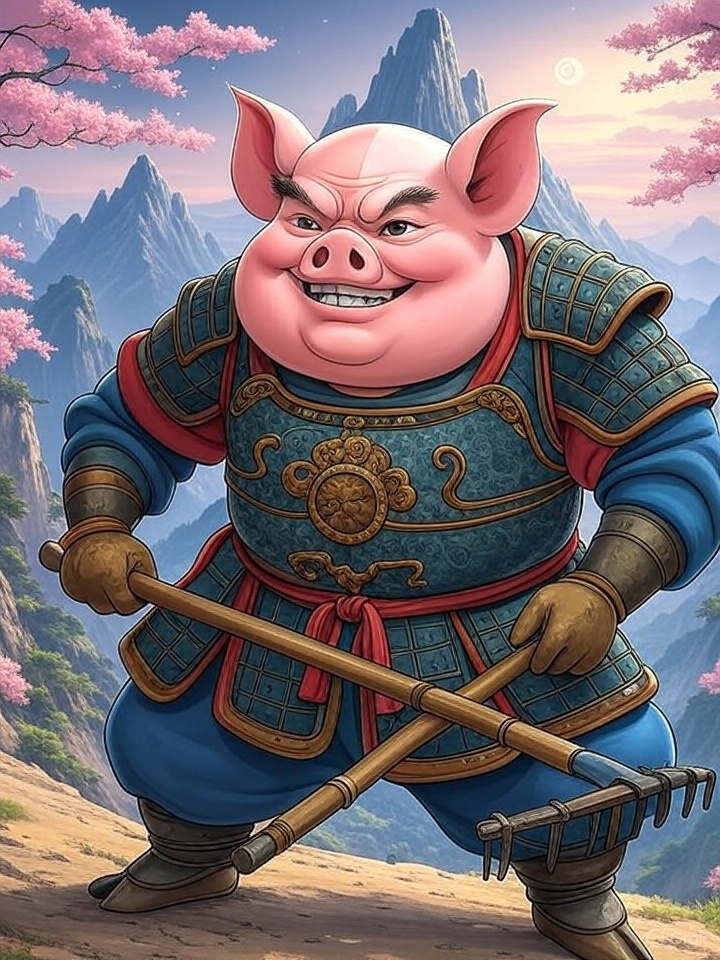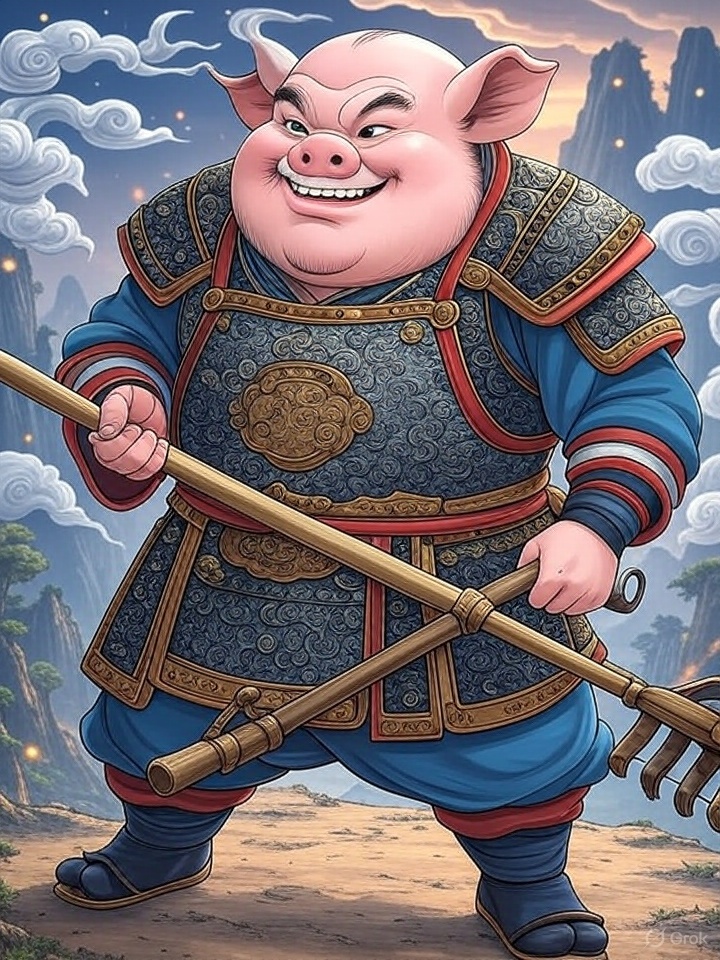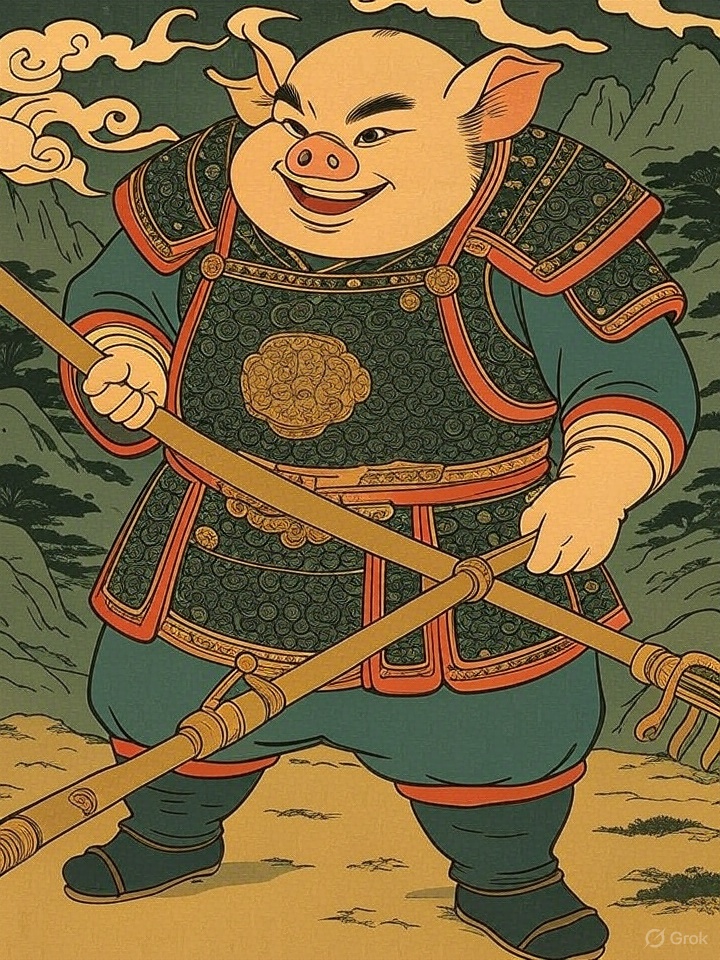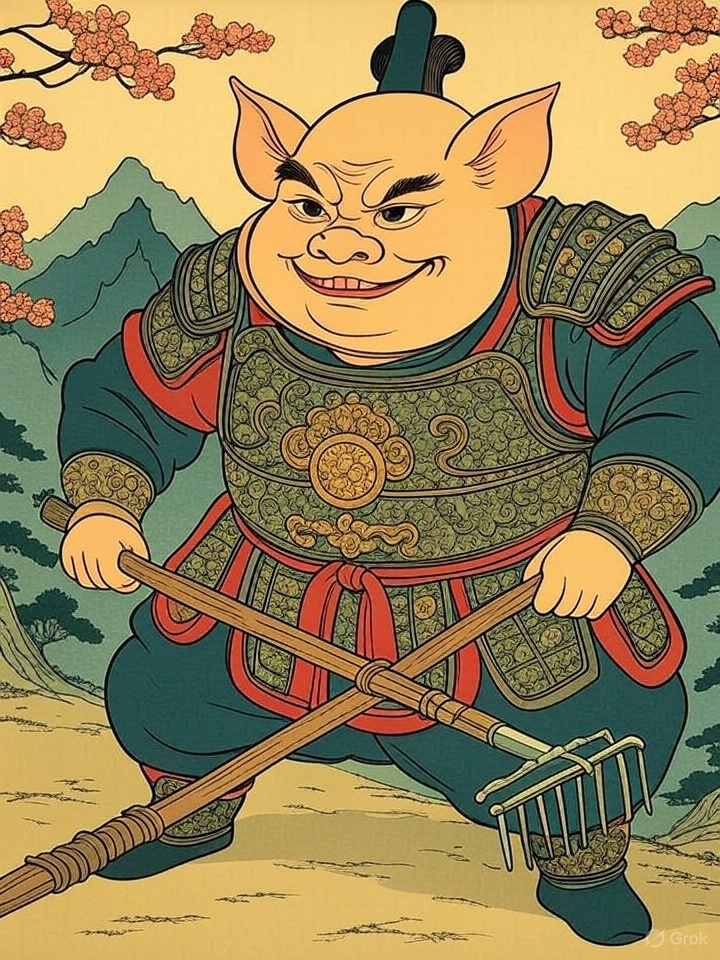Name Meaning
Overview
Cho Hakkai (猪八戒) is the Japanese name for Zhu Bajie, a major character from the Chinese classic *Journey to the West*. Known for his gluttony and lust, he also exhibits moments of great loyalty and bravery.
- Cho (猪) = Pig
- Hakkai (八戒) = Eight Commandments
Origin
- Originally from the Ming Dynasty novel *Journey to the West* by Wu Cheng'en.
- In Japan, adapted into many kabuki plays, folk tales, anime, and manga.
- Often seen as comic relief, but also symbolic of human weakness and redemption.
Appearance
- Typically depicted as a large man with the face of a pig.
- Wears traditional robes and often carries a muck rake or nine-tooth rake weapon.
- Facial features include floppy ears, a round snout, and tusks.
Behavior & Myths
- Was once a heavenly general, punished for lecherous behavior by being reborn with a pig’s form.
- Serves as one of the disciples of the monk Xuanzang (Sanzo Hoshi in Japan) on the journey to India.
- Regularly causes problems due to his appetites but redeems himself through acts of courage.
Symbolism
- Embodies human frailty, especially gluttony, lust, and laziness.
- Also represents growth, repentance, and the journey toward enlightenment despite flaws.
- Popular character in both Chinese and Japanese pop culture for his complexity and humor.



